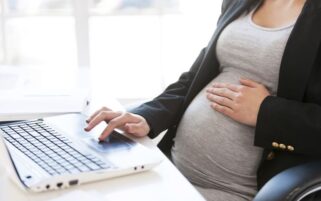The Medical Defence Union (MDU) has revealed it is supporting doctors with more than 2,500 complaints and adverse incidents reported during the Covid pandemic.
The national organisation published this figure in response to a General Medical Council (GMC) report, which showed two-thirds (65%) of doctors have struggled to provide a sufficient level of care to a patient in 2020 due to issues such as high workload and burnout.
The GMC’s report found GPs were ‘most likely’ to struggle with this, as four out of five (81%) reported being unable to offer a sufficient level of care at some point in the year, and 43% said they experience this every week.
The MDU said it has seen these statistics ‘translating into complaints’ from patients and relatives, with many related to the pandemic.
Risk of major errors
The GMC’s report on the annual state of medical education and practice found burnout and workload were particularly associated with patient care.
Half (49%) of doctors at a high risk of burnout reported they found it difficult to provide a sufficient level of care at least once a week in 2020, while 57% who regularly struggle to cope with their workloads said the same, the report said.
However, despite the unique pressures facing the health sector in 2020, the GMC found the risk of burnout was generally lower than in 2019, particularly for GPs.
‘In 2020, GPs remain the most likely to have a moderate to high risk of burnout (28%). However, this is much lower than in 2019, when we reported that GPs were the group of doctors the most at risk of burnout and bearing the brunt of pressures,’ the report said.
The report also said that patient safety ‘depends on doctors’ wellbeing’ and that burnt out clinicians are ‘much more likely to make a major medical error’.
It added: ‘It’s vital that doctors’ wellbeing is protected to enable them to provide the best care possible as the pandemic continues, and the UK’s health services face a very challenging winter.’
The GMC’s findings showed dissatisfied doctors were more likely to have seen patient safety or care compromised than satisfied doctors – 45% compared to 22%, respectively. This group also admitted to being more likely to leave the profession in the next 12 months.
Meanwhile, half (50%) of doctors pointed to ‘a lack of access to necessary equipment or services’ as further compromising patient safety or care, the report said, with some mentioning challenges with onward referrals and limited capacity for diagnostic testing.
During a recent Management in Practice festival webinar, a Medical Protection Society (MPS) expert said the rise of remote consultations in general practice has increased the risk of complaints from patients.
‘Doctors need support’
Charlie Massey, GMC’s chief executive, said: ‘This has been a year like no other, but the challenging situation will last for some time yet and there are issues that healthcare leaders must address.
‘Compassionate and supportive leadership is key, for patients as well as doctors, and this is the case now more than ever. We must all build on the flexible approach that has been a necessity this year.’
Dr Caroline Fryar, MDU’s head of advisory services, said: ‘It is good news that as a result of some of the positive changes to workload, the risk of burnout has been reduced for some doctors, particularly GPs. However, doctors also need support with the challenges that lie ahead.
‘We are concerned that doctors are facing a winter of discontent in terms of patient complaints, regulatory investigations and claims. This is reflected in the GMC’s findings that during 2020, two thirds (65%) of doctors found it difficult to provide a patient with a sufficient level of care, with that figure rising to four out of five (81%) GPs.’
She added: ‘We are working with the GMC on members’ behalf to encourage a fair and proportionate approach to regulation and we are encouraged by the changes already made to their processes. We also need the Government to exempt all NHS healthcare professionals from Covid-19 related litigation, and the additional distress and anxiety it causes.’



